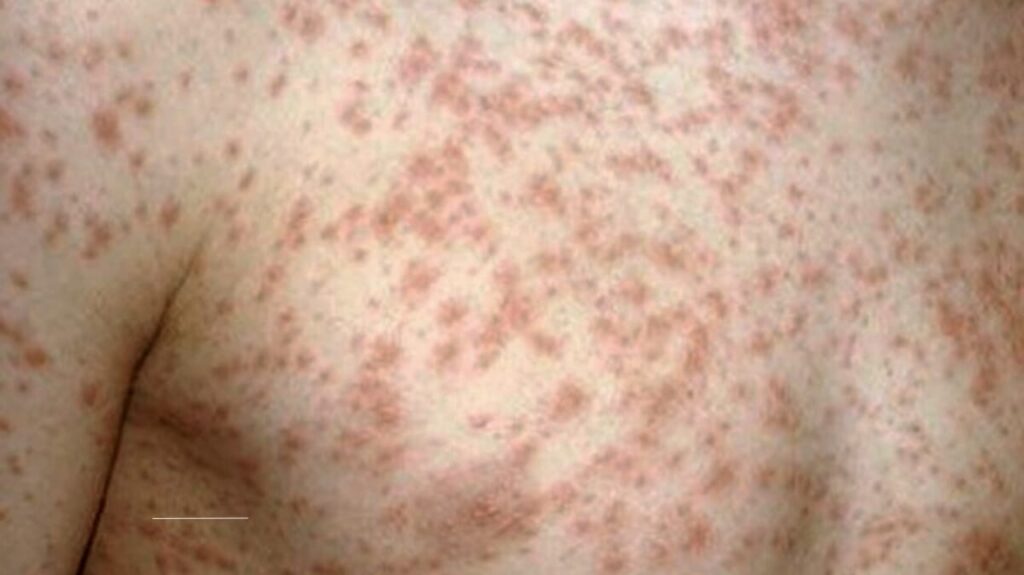
In January 2024, a toddler in Houston was hospitalized with a high fever, red rash, and cough. Doctors confirmed it was measles—a disease the U.S. declared eliminated in 2000. By February 2025, Texas reported over 50 cases, triple the previous year’s numbers. This resurgence highlights a troubling trend: declining vaccination rates and growing misinformation are putting communities at risk.
The Alarming Rise of Measles in Texas
Texas has become a hotspot for preventable diseases. According to the Texas Department of State Health Services (DSHS), only 89% of kindergarteners received the measles-mumps-rubella (MMR) vaccine in 2023, below the 95% threshold needed for herd immunity. Rural counties like Cooke and Hill report vaccination rates as low as 65%, leaving schools vulnerable to outbreaks.
Dr. Sarah Nguyen, a pediatric infectious disease specialist at Baylor College of Medicine, explains: “Measles is like a wildfire. One case can explode into dozens because it’s 10 times more contagious than COVID-19. Without widespread immunity, even small clusters of unvaccinated kids become tinderboxes.”
How Measles Spreads—And Why It’s Dangerous
Measles isn’t just a rash. The virus lingers in the air for up to two hours after an infected person coughs or sneezes. Symptoms start with fever and fatigue, followed by a telltale red rash. Complications include pneumonia, brain swelling, and even death. Before the vaccine, measles killed 400–500 Americans annually.
“Parents often underestimate measles because they’ve never seen it,” says Dr. Luis Ramirez, a Dallas-based epidemiologist. “But in the last decade, U.S. outbreaks have hospitalized 1 in 5 unvaccinated children. That’s not a risk any family should take.”
The Lifesaving Power of the MMR Vaccine
The MMR vaccine, introduced in 1971, is 97% effective at preventing measles after two doses. CDC data shows it’s prevented over 50 million U.S. cases since 1963. Globally, vaccinations have saved an estimated 31 million lives this century.
Despite this success, Texas faces challenges. A 2024 study in Pediatrics found that 12% of Texas parents delay or skip vaccines due to safety fears—though severe allergic reactions occur in just 1 per million doses.
Common Myths Debunked:
- Myth: “Vaccines cause autism.”
Fact: Over 25 studies, including a 2019 review of 650,000 children, found no link. - Myth: “Natural immunity is better.”
Fact: Contracting measles weakens the immune system for years, raising risks of other infections.
Why Vaccination Rates Are Dropping in Texas
Texas allows non-medical vaccine exemptions for “reasons of conscience,” including religious or personal beliefs. In 2023, over 75,000 students opted out—a 25% increase since 2016.
“Misinformation spreads faster than measles,” says Dr. Emily Cortez, a San Antonio pediatrician. “Parents are bombarded with anti-vax content on social media, like debunked claims about ‘toxins’ or immune overload. By the time they come to me, they’re terrified.”
Cultural factors also play a role. In tight-knit communities, distrust of government or preference for alternative medicine can override medical advice.
Herd Immunity: Texas’ Fraying Safety Net
Herd immunity protects those who can’t get vaccinated—infants, cancer patients, or immunocompromised individuals. For measles, 95% of a community must be vaccinated. But in Austin’s Steiner Ranch neighborhood, where exemption rates top 15%, an outbreak in 2024 infected 22 people, including a 6-month-old who required intensive care.
“When vaccination rates drop, everyone suffers,” says Mariana Reyes, a mom whose infant was exposed at a Dallas clinic. “My daughter was too young for the vaccine. We relied on others to keep her safe—and they failed.”
How Texas Is Responding to the Crisis
Public health teams are scrambling to contain outbreaks. Strategies include:
- School Vaccine Drives: Offering free MMR shots at low-income districts.
- Public Education: Partnering with influencers and faith leaders to counter misinformation.
- Emergency Policies: Temporarily barring unvaccinated students from outbreak-affected schools.
Lawmakers are also debating stricter exemption laws. Neighboring states like California and Mississippi, which ban non-medical exemptions, maintain 98% kindergarten vaccination rates.
The Role of Healthcare Providers
Pediatricians are on the frontlines. Clinics like Houston’s Texas Children’s Pediatrics now host “Vaccine 101” workshops, addressing concerns in group settings.
“We’ve shifted from telling parents what to do to listening first,” says nurse practitioner Carlos Mendez. “Once they feel heard, most agree to vaccinate.”
Real Stories, Real Impact
In Fort Worth, a 7-year-old named Jake contracted measles after a family trip to Europe. His mom, Laura, had delayed his shots due to “immune system worries.” Jake spent a week hospitalized with pneumonia.
“I thought I was making the safest choice,” Laura says. “Now I tell every parent: Don’t make my mistake. Vaccinate.”
